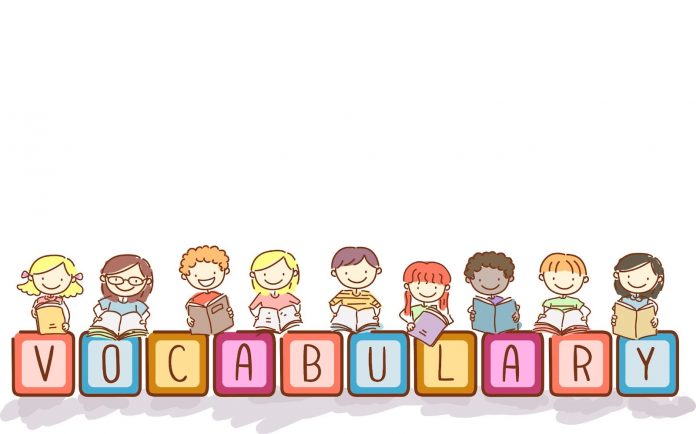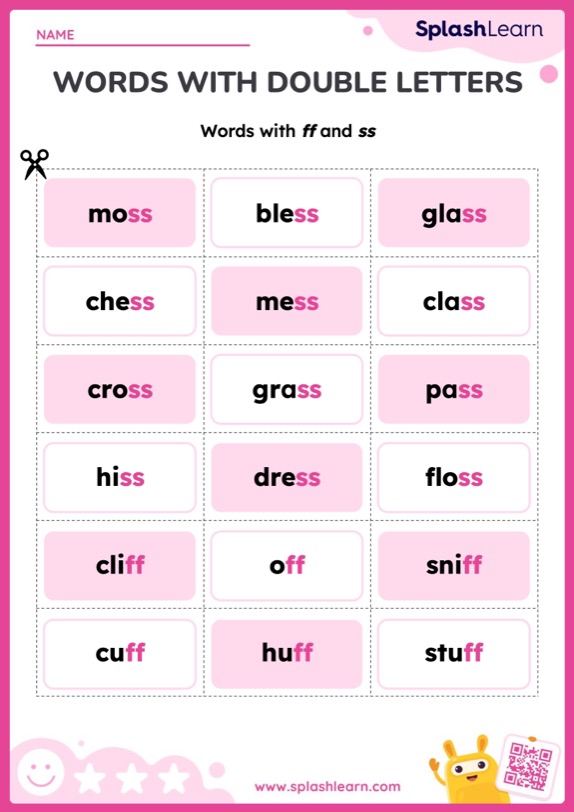Did you know that a child’s vocabulary size at age 2 can predict their language and literacy skills up to fifth grade? For children, building a strong vocabulary is essential for understanding and using words effectively in different contexts. A strong vocabulary isn’t just about knowing many words; it’s about understanding their meanings and using them effectively in everyday life. As teachers, incorporating vocabulary activities into teaching practices can be a fun and effective way to help children learn and retain new words.
Math & ELA | PreK To Grade 5
Kids see fun.
You see real learning outcomes.
Watch your kids fall in love with math & reading through our scientifically designed curriculum.
Parents, try for free Teachers, use for free
In this blog, we’ll explore engaging and fun vocabulary activities for kids in PreK to Grade 6 that make learning words enjoyable while boosting their communication skills.
Related Reading: Best Vocabulary Games to Play in Your Classroom
21 Fun and Interactive Vocabulary Activities for Kids
Here is a list of exciting vocabulary development activities for kids that are tried-and-tested methods that can help children expand their word banks while enjoying the learning process:
4 Engaging Vocabulary Activities for Students With Worksheets
Unscramble activity is an effective method to review vocabulary, spelling, and critical thinking in children. These worksheets challenge kids to rearrange mixed-up letters to form meaningful words, strengthening their word recognition and problem-solving skills.
Here are worksheets where kids will unscramble letters to form words using various techniques like picture clues, word hints, and definitions. Activities include simple mix-ups like “ogfr” to “frog,” word-building with clues, and more advanced exercises featuring Latin and Greek root words for older learners. With themes ranging from everyday vocabulary to specific topics, these worksheets cater to different age groups and learning levels.
Unscramble Words with Picture Clues and Hints
Decode scrambled words using definitions, picture hints, and word clues
2. Crossword Puzzles
Crossword puzzles are not only entertaining but also effective in enhancing vocabulary and critical thinking skills. By solving clues to fill in the blanks, learners are exposed to new words and are challenged to recall words they already know.
Here are worksheets that incorporate techniques like riddles, picture clues, and context-based questions, encouraging children to think critically while learning new words. With themes like everyday objects, winter elements, New Year celebrations, and Halloween, kids stay engaged as they solve clues, identify words, and complete the grids. These puzzles are perfect for classroom use, offering teachers a versatile resource for quick warm-ups, independent practice, or themed learning activities that make vocabulary building both interactive and effective.
Solve Themed Crosswords with Clues
Solve grids on winter, Halloween, and New Year themes with engaging clues
Recommendations: For younger kids, start with simple crosswords with picture clues. As they advance, introduce them to more challenging puzzles.
3. Flashcards
Flashcards are a time-tested method for vocabulary enhancement. They allow learners to repeatedly review and test their knowledge of words and their meanings, promoting retention and recall.
Here are some flashcard worksheets that feature cut-and-use flashcards that focus on key concepts like antonyms, words with double letters, short vowel families, sight words and more. Kids can match antonym pairs, identify double-letter words such as moss, bless, and glass, and practice short vowel sounds with words. Sight words, such as just, know, and then, help children improve fluency and comprehension through repeated practice. Teachers can use these flashcards for interactive activities like matching exercises, group challenges, or quick drills, making vocabulary practice fun and engaging while reinforcing key language skills.
Master Vocabulary with Themed Flashcards
Match antonyms, identify double letters, and practice key sight words
Tips:
- Create two-sided cards with the word on one side and its definition, a sentence, or a synonym on the other.
- Make the learning process interactive by incorporating images or colors.
Word search puzzles involve finding hidden words within a grid of letters. These puzzles help improve word recognition, spelling, and pattern recognition.
Here’s a collection of engaging word search worksheets where kids identify words from picture clues, like sock, crab, or hand, and find them in the puzzle. Themed activities, such as words ending in “nd” or animals starting with “B,” make vocabulary building interactive and exciting. Whether used as a warm-up, reinforcement tool, or vocabulary-building exercise, these worksheets provide a versatile and enjoyable resource for enhancing word skills in young learners.
Find and Learn Words with Picture-Based Puzzles
Use picture hints to locate words like “hand” and “moss” in the grid
Tips:
- Start with smaller grids for younger kids and gradually increase the complexity.
- Create custom word search puzzles based on themes or topics of interest using online tools.
4 Reading and Word Exposure Vocabulary Activities
5. Read Aloud Sessions

Reading aloud is one of the most effective ways to build vocabulary. When kids hear words being used in context, they gain a better understanding of their meanings and develop a stronger grasp of language.
Here are Read Around Books that help children improve their listening skills, understand what they hear, and learn new words in a fun, interactive way. Teachers can assign these books to students with features like “Read to Me” and “Read by Myself”, allowing children to read at their own pace or follow along as the text is read aloud. Additionally, teachers can track reading progress, identify where students need help, and provide targeted support to strengthen their literacy skills.
By signing up, you can access these tools and transform read-aloud sessions into an effective strategy for enhancing vocabulary, comprehension, and overall language development for free.
6. Word of the Day
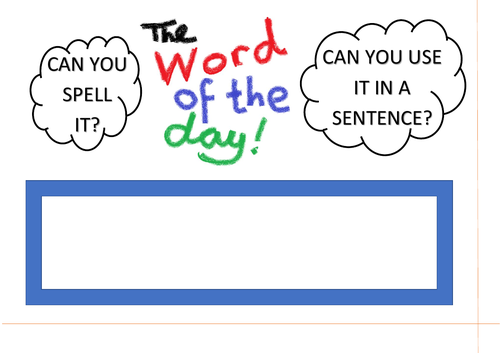
The “Word of the Day” is a simple yet effective vocabulary activity. It involves introducing children to a new word every day, helping them understand its meaning, pronunciation, and usage.
Tips: Parents can integrate the “Word of the Day” into daily routines by:
- Writing the word on a whiteboard or sticky note and placing it in a visible area.
- Encouraging kids to use the word in sentences throughout the day.
- Associating the word with fun activities to reinforce its meaning.
Related Reading: How To Make Simple Sentences For Kids
7. Storytelling
Storytelling is a powerful tool if you are looking for activities on vocabulary for kids. When children listen to or create stories, they encounter a plethora of new words in a meaningful context.
Encourage kids to craft their own tales. Provide them with a theme or a set of words to incorporate into their story. This not only boosts their vocabulary but also sparks their creativity. Parents can also share folktales or family anecdotes, pausing to explain any complex words or phrases.
Related Reading: Best Storytelling Activities for Kids
8. Scrabble
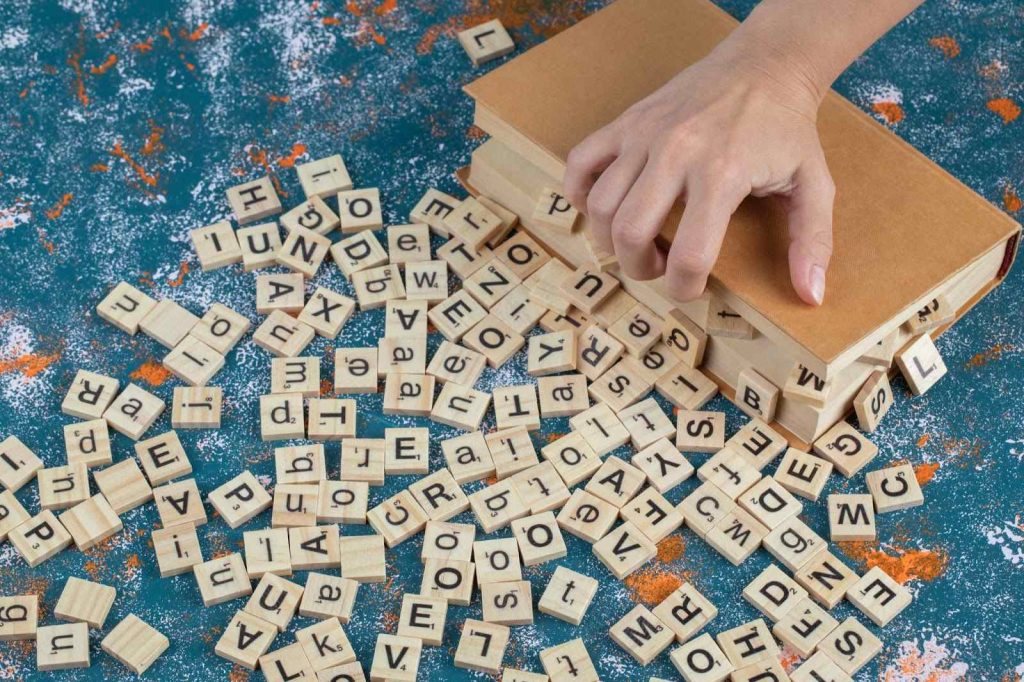
In this activity, students use letter tiles to create words, helping them improve their vocabulary and spelling. Teachers can give simple instructions like forming words with a specific prefix, suffix, or theme. For example, students might be asked to make words related to animals, weather, or a root word like “play” (e.g., “playing”, “replay”).
This hands-on activity helps students understand how words are built and encourages creative thinking. Teachers can use it for group work or as a timed challenge to keep students engaged. It can be adjusted for different skill levels – younger learners can make shorter words, while older students can focus on longer, more complex ones.
4 Vocabulary Building Through Play
9. Pictionary
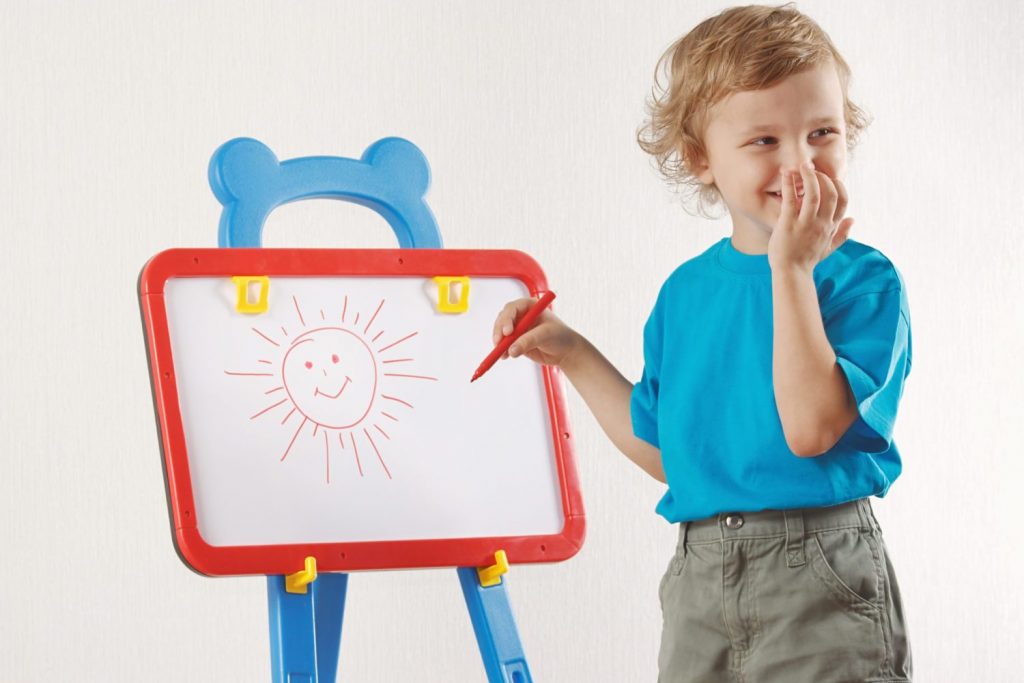
Pictionary is one of the most engaging free vocabulary activities to teach vocabulary. It requires players to draw a word without using letters or verbal hints, which enhances word recognition and stimulates creativity. By visualizing and drawing out words, children can form stronger associations and recall them more easily.
Tips to organize Pictionary sessions:
- Create a set of cards with vocabulary words suitable for the age group.
- Divide participants into teams and take turns drawing while others guess.
- For younger kids, use simple words and gradually introduce more complex terms as they become more confident.
10. Vocabulary Bingo with a Twist
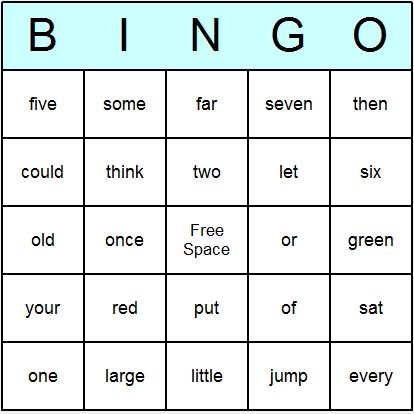
Transforming the classic Bingo into a vocab activity can make vocabulary learning more engaging. Instead of numbers, use words on the Bingo cards. As the words are called out, participants mark them off their cards.
Examples: A Bingo card for younger children might include words like “apple,” “tree,” “book,” while for older kids, it could have words like “metaphor,” “equator,” or “constitution.”
Related Reading: Funny Words for Kids to Tickle the Funny Bone
11. Word Building Blocks
Building blocks are not just for constructing towers or bridges. They can also be used as a tactile method for kids to form words, enhancing their spelling and vocabulary skills.
Recommendations: Sets like “See and Spell” or “Alphabet Building Blocks” are specifically designed for vocab activities, allowing children to physically piece together letters to form words.
12. Word Charades
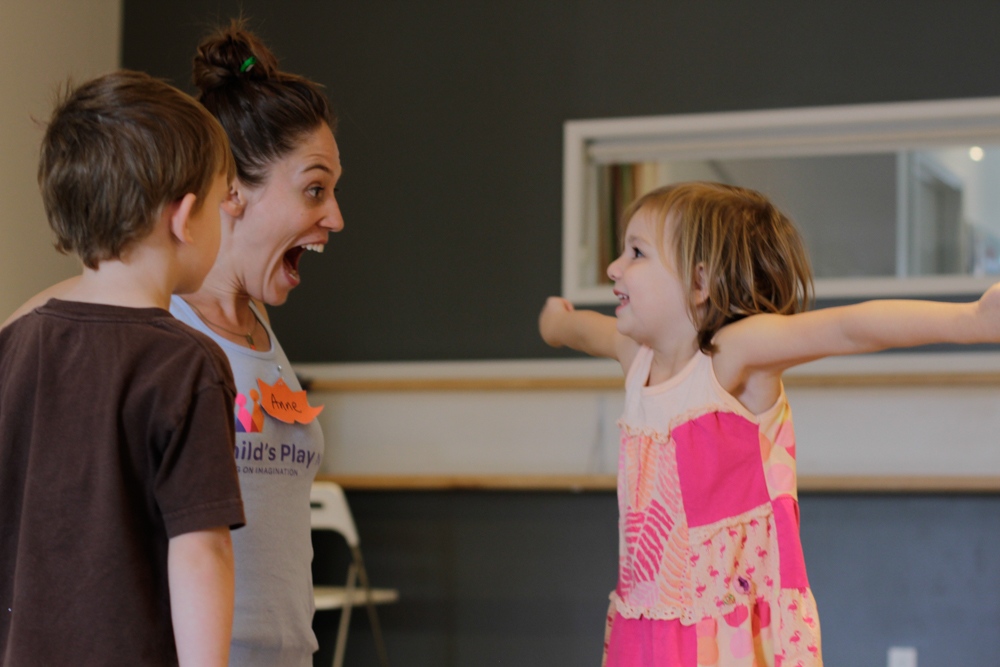
Word Charades is similar to the traditional activity of charades but focuses solely on vocabulary words. Players act out a word without speaking, relying on gestures and expressions, making it one of the most interactive vocabulary practice activities.
Ideas for Prompts: Depending on the age group, word charade prompts can range from “butterfly” or “jump” for younger kids to “astronaut” or “reflection” for older ones.
9 Real-Life Experiences and Creative Activities to Enhance Vocabulary
13. Museum Visits
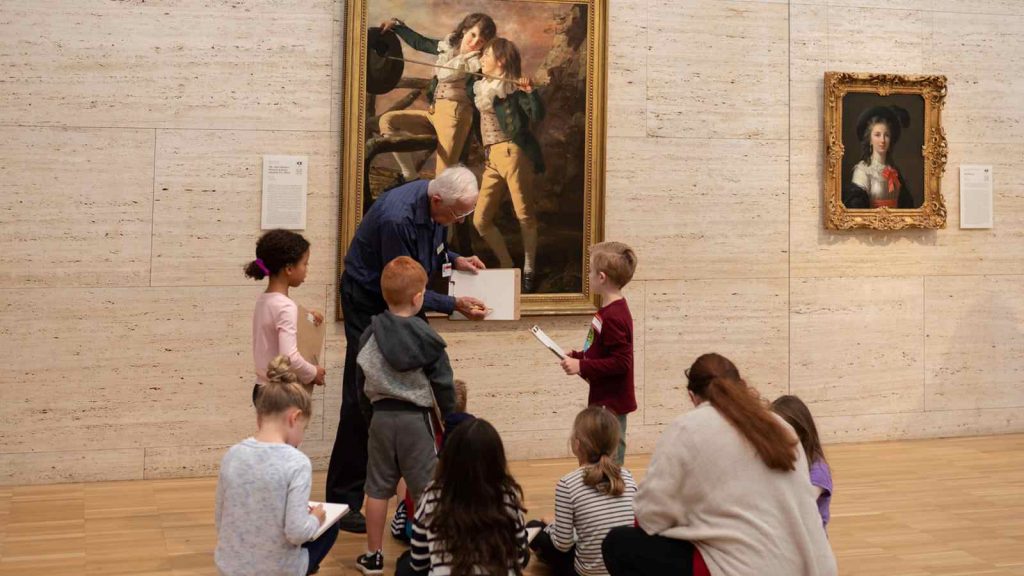
Museums are more than just buildings filled with artifacts; they’re immersive environments where every exhibit tells a story. Each display introduces children to a world of new terms, from historical events and figures to scientific concepts and artistic techniques. Engaging in such vocabulary builder activities allows children to contextualize words, making them easier to remember.
Recommendations: Before visiting, research the museum’s exhibits and prepare a list of words or concepts you expect to encounter. During the visit, encourage kids to read exhibit descriptions aloud, ask curators questions, and later discuss their favorite exhibits and the new terms they’ve learned.
14. Library Visits and Book Scavenger Hunt

Libraries, with their vast collections of books, are perfect places if you are looking for fun vocabulary words activities. A book scavenger hunt adds an element of excitement. Children not only discover new books but also encounter a plethora of new words.
Tips: Design clues that guide kids towards specific genres, authors, or themes. After the hunt, discuss the books they’ve chosen, focusing on interesting words or phrases they found intriguing.
15. Newspaper or Magazine Reading
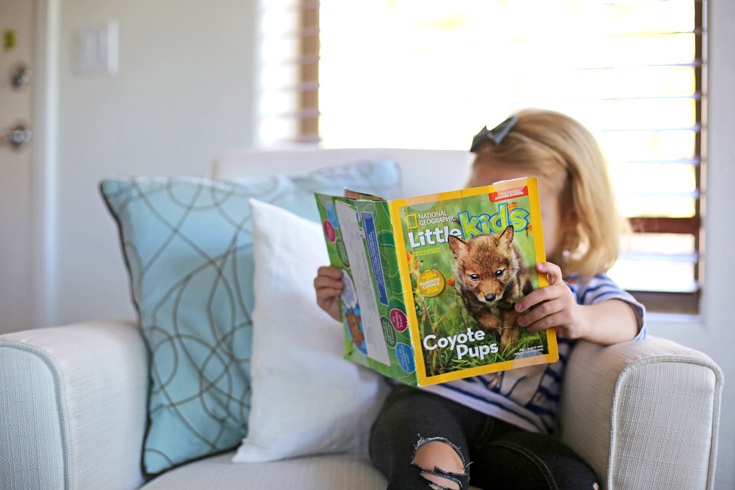
Newspapers and magazines cover a wide range of topics, from global events to local news, arts, science, and more. Regular reading exposes children to diverse vocabulary in context.
Recommendations: Dedicate a weekly session to discuss interesting articles. Highlight challenging words, explore their meanings, and encourage kids to use them in sentences.
Related Reading: Different Type of Reading Materials for Kids
16. Cooking Together with a Recipe Challenge

Cooking is a hands-on activity that introduces children to a world of flavors and the vocabulary that describes them. From ingredients to cooking techniques, every recipe is a lesson in language. This is one of the most fun vocabulary building activities for kids.
Tips: Once a week, challenge kids to try a new recipe. Discuss unfamiliar terms, and as they cook, ask them to describe the textures, flavors, and processes, expanding their culinary vocabulary.
Related Reading: Best & Fun Preschoolers Cooking Activities With Recipe
17. Grocery Shopping and Word Search

Discussion: Grocery stores are filled with a variety of products, each with its name, ingredients, and origin. Turning shopping into a vocabulary development activity can make it both educational and fun.
Recommendations: Prepare a list with descriptions instead of direct product names. For instance, “Find something that’s sweet, red, and crunchy.” After shopping, discuss the items, their origins, and any unfamiliar terms on the packaging.
18. Vocabulary Journal with Everyday Words
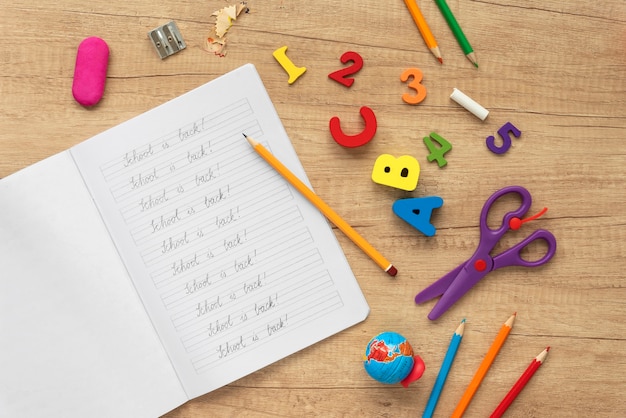
A vocabulary journal is a dedicated space for children to document their linguistic journey. By noting down and revisiting new words, they reinforce their learning.
Tips: Encourage daily entries. Apart from writing the word and its meaning, ask them to draft a short story or poem using the new terms, enhancing both vocabulary and creativity.
Related Reading: Creative Journal Prompts for Kids
19. Word Wall in the Classroom
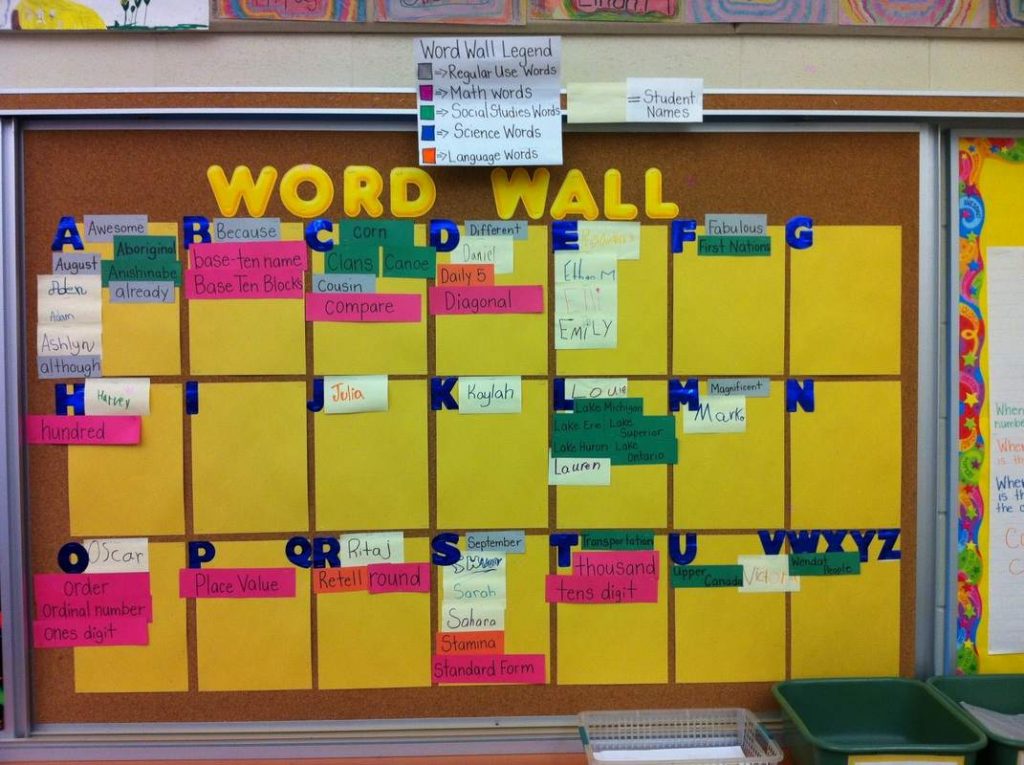
A word wall is a dynamic display that grows with a child’s vocabulary. It serves as a daily reminder of words learned and a quick reference.
Recommendations: Dedicate a space where kids can add new words, categorize them by themes, or even associate them with images or drawings. Review and discuss the wall periodically, celebrating milestones and introducing challenges.
20. Riddle of the Day
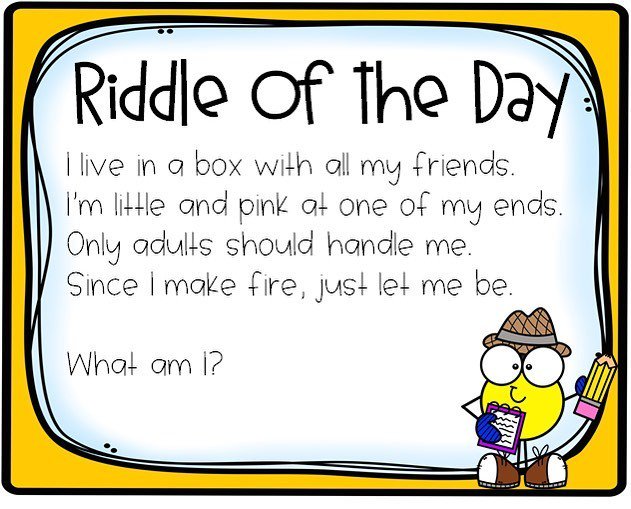
Riddles stimulate critical thinking and often introduce children to multiple meanings of words. They’re fun puzzles that challenge kids to think beyond the obvious.
Tips: Start the day with a riddle. Discuss the answer, focusing on the vocabulary used. Encourage children to craft their own riddles, enhancing both their creativity and word knowledge.
21. Story Writing and Vocabulary Expansions
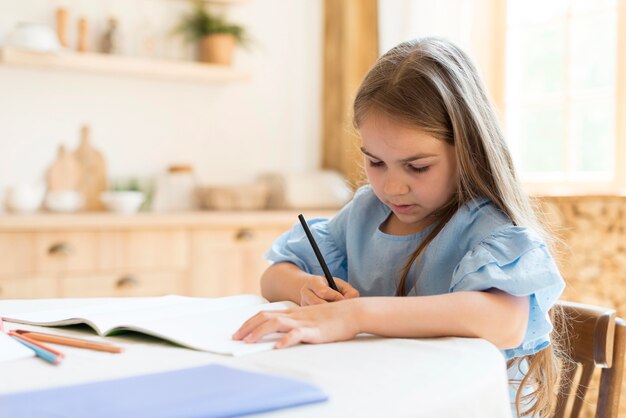
Writing is a powerful tool for vocabulary enhancement. When children craft stories, they dive deep into their vocabulary reservoir, using words in varied contexts.
Recommendations: Provide weekly writing prompts. After they’ve written their stories, review them together, highlighting excellent vocabulary usage and introducing synonyms or more complex terms they could incorporate in future writings.
Related Reading: How to Improve Kids' Vocabulary
Conclusion
The journey of vocabulary enhancement is not limited to structured lessons or specific tools. Real-life experiences and creative expressions offer a plethora of opportunities for children to immerse themselves in a world of words. As highlighted by PLD Literacy, strong vocabulary and oral language skills lay the foundation for literacy and overall academic success. These skills not only foster a child’s confidence but also impact their relationships, sense of self, and even their mental well-being.
By engaging in diverse vocabulary activities, we not only prepare our children for academic challenges but also equip them with the linguistic tools to navigate the world confidently.
Related Reading: Amazing Grammar Games & Exercises for Kids
Frequently Asked Questions (FAQs)
Can real-life experiences genuinely enhance vocabulary in kids?
Absolutely! Real-life vocabulary activities provide contextual learning, making word retention more effective. Activities like museum visits or grocery shopping introduce children to diverse terms in meaningful settings.
Are digital vocabulary activities as effective as traditional methods?
Both digital and traditional methods have their merits. Digital activities offer interactive and engaging platforms, while traditional methods provide tactile and personal experiences. A balanced approach is ideal.
How can parents integrate vocabulary activities into daily routines?
Parents can weave vocabulary activities into everyday tasks like cooking, reading bedtime stories, or discussing daily events. Simple practices like introducing a “Word of the Day” or discussing newspaper articles can be effective.

















